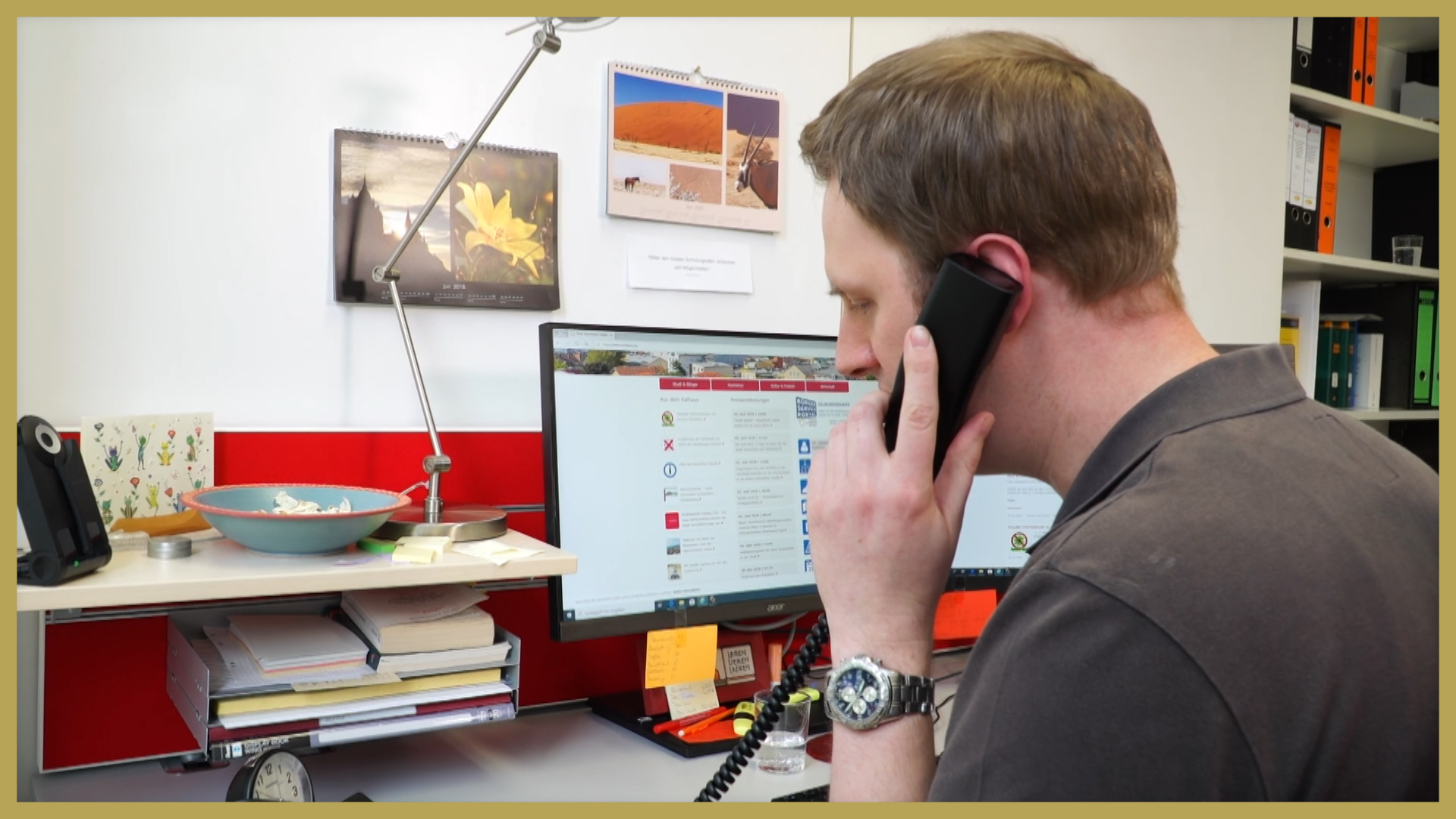02:47

At the height of the pandemic in Germany, Walther Leonhard was calling upwards of 10 to 12 different people a day to inform them they had been in contact with a person who had tested positive for COVID-19.
"Their family members, their work colleagues, maybe a doctor and so on, all people they have contact with for more than 15 minutes and closer than 1.5 meters."
As a contact tracer, Leonhard's job is to let these people know that they, too, could be infected, so must go into quarantine.
He says he receives differing responses: "Some are really scared and some say 'yeah, it's ok of course, I'll do everything. It's no problem.' Some are a little bit annoyed to be honest because they have a job to do, a business. And some are very angry and don't want to follow that, but to be honest this is a minority of people who are very angry."

Germany's efficient track-and-trace system has helped the country to keep COVID-19 deaths below 9,000, despite an infection rate comparable with many other European countries. /Reuters
Germany's efficient track-and-trace system has helped the country to keep COVID-19 deaths below 9,000, despite an infection rate comparable with many other European countries. /Reuters
He works for the small southern German city of Rosenheim, which has had more positive cases of COVID-19 per capita than the state capital, Munich, 65 kilometers northwest.
One presumed reason for this is Rosenheim's close proximity to Austrian ski resorts, which are believed to have been key points of infection during the early months of the pandemic.
Oliver Horner is the director of the public order department for the city of Rosenheim and says the city's track-and-trace program has been essential in helping the country tackle COVID-19.
"We try to withdraw the infected people from circulation and isolate them quickly. The quicker the person is quarantined, the lower the chance others get infected."
The local health authority is alerted once a person has tested positive for COVID-19. That information is then handed on to the city's public order department.
"We then find the contact persons," says Horner. "I then directly pass on this information to the contact-tracing team. They will call all the people concerned and send them into quarantine."
Many people accepted the partial shutdown that we had. But grocery stores remained open, pharmacies remained open. The hospitals were not overrun and also very important is [that] very early on we had testing available throughout Germany so there wasn't only a reference laboratory in Berlin, [testing] was based at all university hospitals.
- Andrew Ullman, physician and professor of infectious disease on Germany's pandemic response
Similar programs are being run all across the country.
While not unique to Germany, it has helped Germany gain the upper hand against a virus that has so far killed well over 400,000 globally.
Fewer than 9,000 of those deaths are from Germany, despite a rate of infection comparable with other EU nations.
From early tracking and tracing to extensive testing and a stable healthcare system, the country's recovery rate has been applauded both at home and abroad and has made Germany an example for tackling the pandemic.
From the onset of Germany's first confirmed case in January, at an automotive accessories company near Munich, authorities were quick to track, test and isolate all people connected to the infected person.
Then the country shut down.

Widespread testing and a stable healthcare system has enabled Germany to keep the virus under control and reopen schools, shops and other businesses. /AP
Widespread testing and a stable healthcare system has enabled Germany to keep the virus under control and reopen schools, shops and other businesses. /AP
"Many people accepted the partial shutdown that we had," says Andrew Ullman, a physician and professor of infectious disease.
"But grocery stores remained open, pharmacies remained open. The hospitals were not overrun and also very important is [that] very early on, we had testing available throughout Germany, so there wasn't only a reference laboratory in Berlin, [testing] was based at all university hospitals."
However, there have also been many critics of Germany's actions. Demonstrations have taken place in many major cities, with protesters calling Chancellor Angela Merkel and the heads of the 16 federal states "dictators" for stoking panic and unilaterally implementing social-distancing and lockdown measures.
Despite substantial financial rescue packages, Germany has sunk into a recession.
Germany is by no way over the pandemic, but there is cautious optimism that the worst is over.
However, according to the World Health Organization, a second wave of COVID-19 infections is expected as countries around the world begin to open up again, meaning Walther Leonhard and the hundreds of other trackers across Germany won't be losing their jobs any time soon.